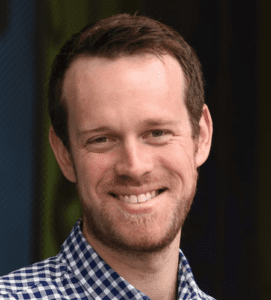Posted By: Sara Cullinan, PhD, Deputy Editor, AJHG

Each month, the editors of The American Journal of Human Genetics interview an author of a recently published paper. This month we check in with Eugene (@DrGeneUK) to discuss his paper “Detecting cryptic clinically relevant structural variation in exome-sequencing data increases diagnostic yield for developmental disorders”
What prompted you to start working on this project?
EG: I work on the Deciphering Developmental Disorders (DDD) study, which has recruited 13,451 individuals from Great Britain and Ireland with severe developmental disorders. One of the primary goals of the DDD study is to use genomics approaches to identify genetic variants potentially associated with study participant’s disabilities. To accomplish this goal, and like many studies and clinical testing laboratories, DDD has paired whole exome sequencing and genotyping arrays with specialized software. Commonly applied software is good at identifying either very small or very large genetic variants, but not at finding all the potentially interesting stuff in between. So we knew that we could be missing potentially important genetic variants and needed a specialized approach to find them. In other words, we wanted to know what variants “fall through the cracks” of traditional approaches. This idea grew into the tool we published as part of this manuscript: InDelible.
What about this paper/project most excites you?
EG: Getting genetic variants to clinicians so they can help families obtain a diagnosis. Many families with children who have developmental disorders experience a years-long diagnostic odyssey. Variants that we identified as part of this study are hopefully the beginning of the end to this arduous process. While there is still a lot of work to be done, the variants we provided as part of this study may help to bring this distressing chapter to a close and open a new chapter where future care can be informed and shaped by the genetic diagnosis. Every variant identified is a possible diagnosis and something I take immense pride in.
Thinking about the bigger picture, what implications do you see from this work for the larger human genetics community?
EG: My hope is that, when searching for the genetic cause of an individual’s disability, researchers and clinicians won’t stop after a few basic approaches. There are diagnoses waiting to be found where you least expect them and we have created an open-access tool that can be run easily, quickly, and at low-cost that may help a family looking for an answer.
As we highlight in the paper, this seems particularly relevant for individuals with genetic variants in MECP2, the causal gene of Rett Syndrome. We found a large number of genetic variants which disrupted MECP2 missed by standard software. Thus, without specialized approaches like InDelible, these variants never would have been found.
What advice do you have for trainees/young scientists?
EG: Perseverance! There are likely to be many times during your career that experiments don’t work or your fancy hypothesis doesn’t pan out the way you thought it would. Being a good scientist means understanding why your approach didn’t work and thinking about alternate ways to look at your question(s). But perseverance doesn’t have to be something you do alone. Perseverance also means surrounding yourself with a supportive environment to help you through these difficulties. That means having friends to commiserate with, colleagues to bounce ideas off of, and supportive mentors who will help you to grow as a scientist.
And for fun, tell us something about your life outside of the lab.
EG: As an American living in the United Kingdom, I have tried to embrace both the positives and negatives of my adoptive home. On the positive side, I have rekindled my love for the great outdoors and spend much of my downtime exploring the many hiking trails and campsites scattered around the UK with my dog Chicago – Scotland is a particular favorite! But on the other hand, I now love to complain and worry about (even mildly) bad weather.
While this probably forms part of the “advice” question, I really recommend spending some time training and doing science in a different research environment if you can make it happen. I know this comes with a mild dose of privilege, but this can mean anything from moving to a different university in another part of your hometown or across an ocean like I have. Moving to a new environment will give you an entirely new perspective and enrich your science in ways you can’t even imagine.
